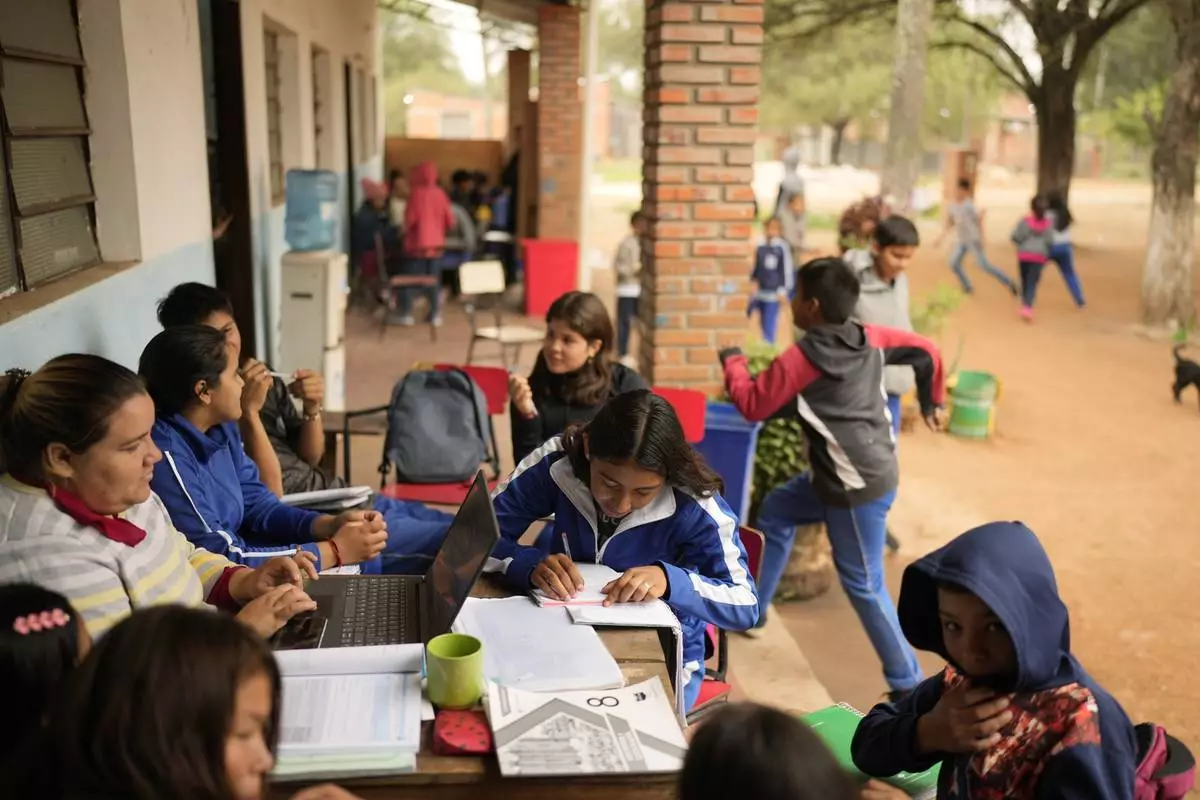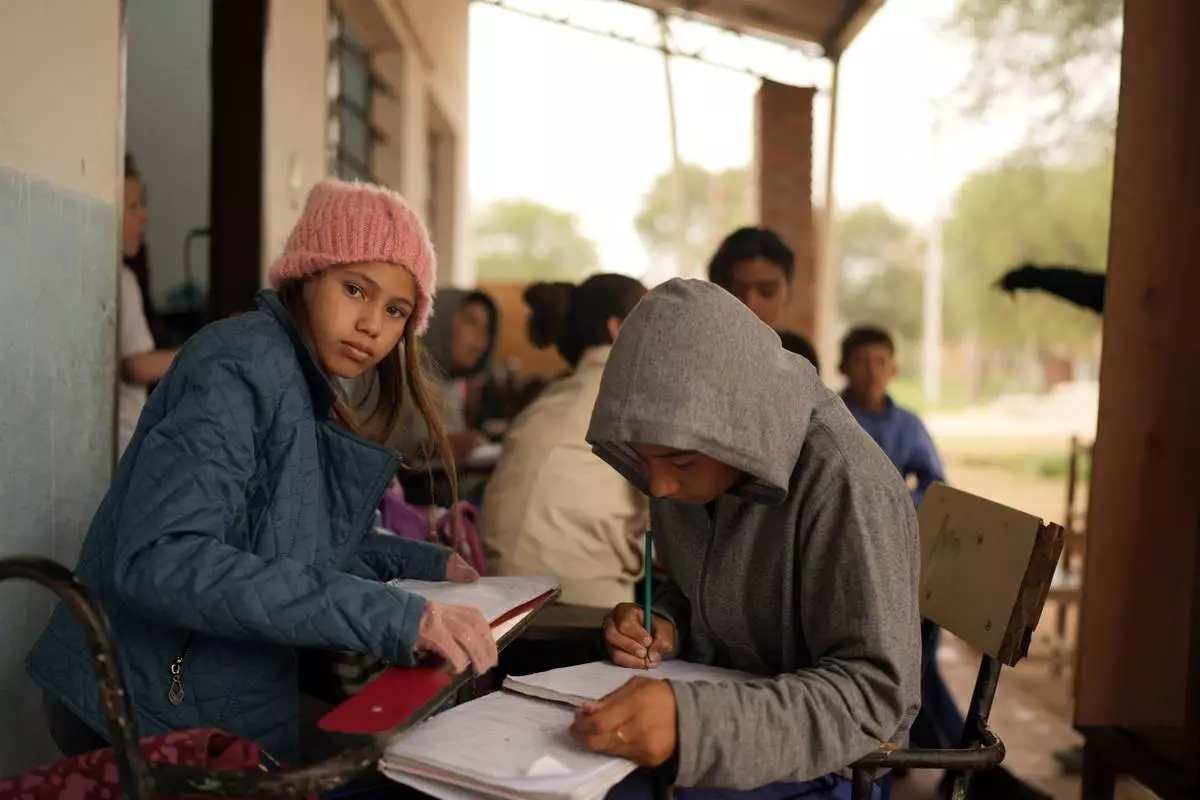NEW YORK (AP) — American Express said Friday second-quarter profits jumped 39% as the credit card company benefitted again from a broad increase in cardmember spending as well as more of its customers carrying a balance.
Profit reached $3.02 billion, compared to $2.17 billion in the same period a year ago. On a per-share basis, AmEx earned a profit of $4.15. Excluding one-time gains, AmEx earned $3.49 per share, handedly beating analyst’s forecasts of $3.24 per share, according to FactSet.
AmEx once again benefitted from its cardmembers — who tend to be wealthier and less exposed to economic fluctuations — continuing to spend on their cards, despite the economic uncertain and the effects of inflation.
Amex customers spent $440.6 billion on their cards last quarter, up 3% from the year before. Merchants pay a fee for each time they accept an AmEx card. That fee ranges depending on industry and merchant size but is typically 2% to 4%.
Further, AmEx customers are keeping a balance on their cards for longer and for higher amounts as well. The company reported $130.8 billion in cardmember loans, up 14% from the year before.
That helped AmEx earn record interest income of $5.79 billion in the quarter, up 21% from the year before. The company had to set aside a modestly larger amount to cover potentially bad loans this quarter.
“We continued to drive momentum across the business, including stable growth in billings at 6%, strong new card acquisitions of 3.3 million, double-digit growth in card fee revenues for the 24th consecutive quarter, and excellent credit performance,” said Steve Squeri, the company's chairman and CEO, in a statement.
AmEx also raised its full-year profit forecast to a range of $13.30 to $13.80 per share, up from $12.65 to $13.15 per share that it previously had forecasted. The company had $440.6 billion in transactions charged on its network last quarter, up 3% from a year earlier.

FILE - An American Express card is shown on Jan.18, 2024, in Atlanta. American Express reports earnings on Friday, July 19, 2024. (AP Photo/Mike Stewart, File)
ASUNCIÓN, Paraguay (AP) — Ahead of her 15th birthday, Diana Zalazar's body had gotten so big she could no longer squeeze into the dress she bought for her quinceañera to celebrate her passage into womanhood in Paraguay.
Her mother sought help from a doctor, who suspected that growing inside of the 14-year-old Catholic choir girl could be a giant tumor. Next thing Zalazar knew, a gynecologist was wiping down the probe she’d applied to her belly and informing her that she was in her sixth month of pregnancy.
It made no sense to Zalazar, who had recently had sex for the first time without realizing it could make her pregnant.
In Catholic Paraguay, which has the highest rate of teenage pregnancy in South America, many young mothers explained their teen pregnancies to The Associated Press as the result of growing up in a country where parents avoid the birds and the bees talk at all costs and national sex education is indistinguishable from a hygiene lesson.
“I didn’t decide to become a mother," Zalazar said. "I didn’t have a chance to choose because I didn’t have the knowledge.”
Over the years that Zalazar, now 39, has gone from sexual ignorance and shame to raising her 23-year-old son and advocating for children's rights, Paraguay's lack of sex education has remained unchanged — until now. For the first time, the Ministry of Education has endorsed a national sex ed curriculum. But in a surprising twist, it's the sexual health educators and feminists who are panicked. Conservative lobbyists are thrilled.
The curriculum, a copy of which was obtained by the AP, promotes abstinence, explains sex as “God’s invention for married people,” warns about the inefficacy of condoms and says nothing of sexual orientation or identity.
“We have a very strong Judeo-Christian culture that still prevails, and there’s fierce resistance to anything that goes against our principles,” said Miguel Ortigoza, a key proponent of the curriculum and evangelical pastor from Capitol Ministries, a Washington-based nonprofit that ran Bible study for former President Donald Trump’s Cabinet.
As a new generation of activists campaigning for legal abortion and gay rights scores victories across Latin America, a conservative backlash has gathered in Paraguay. The country already has among the world’s strictest abortion laws — punishable by prison time even in cases of incest or rape, though not when the mother’s life is in danger.
“Laws everywhere now allow girls to kill their babies, but Paraguay is among the remaining few saying no for Jesus’ sake,” said Oscar Avila, manager of an anti-abortion shelter for young mothers in Paraguay’s capital. At a recent morning Mass, girls no older than 15 filled the pews, some heavily pregnant, others with infants on their hips.
Critics explain the outsized power of Paraguay’s right-wing pressure groups as the consequence of a peculiar history. The conservative Colorado party has ruled the country for 76 of the past 80 years — including during a dictatorship openly sympathetic to Adolf Hitler.
“Growing up under the dictatorship, I was told homosexuality is a deviation,” said Simón Cazal, founder of Paraguayan LGBTQ+ rights group SomosGay. “The dictatorship legally ended, but the same political clans kept running the show.”
More recently, the rise of the far right in Latin America has given the governing party’s platform of religion, family and “patria,” or fatherland, newer resonance — emboldening conservative culture warriors with evangelical ties to take their battles to classrooms.
In 2017, Paraguay became the first country to ban school discussions about gender identity, an unwitting trailblazer for European populists and Republican governors. Now its sex ed curriculum has become a national flashpoint.
“The text is very dangerous, it’s an affront to science,” leftist Sen. Esperanza Martínez told a government committee recently convened to debate the curriculum.
Education Minister Luis Fernando Ramirez downplayed the controversy, stressing there was still time to improve the curriculum before enforcing it. “There’s no expenditure of state funds,” he told lawmakers. “Let’s not pass judgement until we do deeper work.”
Authorities assembled teams to revise the curriculum, called “12 Sciences of Sexuality and Affectivity Education," which it plans to pilot in September across five eastern regions before taking it nationwide. Parents' rights groups praise the 12 books, one for each grade, as a way of teaching morals and protecting young people.
“It's a real battle for life, family, the true rights of children and the freedom of parents,” said curriculum author Maria Judith Turriaga. “It's the reason parents fought for it to be included in public schools.”
The curriculum instructs children to treat others with respect and cultivate healthy relationships.
But in discouraging contraception and enforcing traditional gender norms, it has become a lightning rod for social tensions. Critics say it perpetuates sexist stereotypes: “Men conquer, not seduce,” “girls have smaller and lighter brains,” “boys don't cry easily,” “girls don't like taking risks."
Masturbation, it says, causes "frustration and isolation." Marital love lasts forever. Girls should beware of “how their way of dressing makes men behave.” Female puberty is “the body preparing to become a wife and mother.”
The books are filled with unexpected claims, too — “Boys do not clearly perceive high-pitched voices," it says.
Any talk of sex is about the heterosexual variety.
“Without a truly inclusive education that allows you to understand your reality, it’s scary,” said Yren Rotela, a trans activist whose identity as female at 13 pushed her into indentured servitude and sex work in a country where transgender identity is not legally recognized, there’s no legislation recognizing hate crimes and discrimination is widespread.
At a workshop in August, participants voiced alarm over parts of the curriculum emphasizing the duty of obedience to parents and authorities and urging pregnant teens to confide in their families — even as sexual assault is typically perpetrated in the home.
“I never got help from my family, they were threatening me not to tell anyone,” said Liliana, who was raped by her stepfather and became pregnant at 13, speaking on condition that only her first name be used because her case is under investigation.
The focus on unquestioned deference carries a political charge in Paraguay, where experts say Latin America’s longest-ruling dictatorship instilled an enduring autocratic tradition.
“It's easy in this country to create authoritarian projects that play on people's fears,” said Adriana Closs, president of Feipar, a Paraguayan group promoting comprehensive education. “Political factions are taking advantage of this because of the favorable global context.”
As the politics of social conservatism surge from Brazil to Hungary, Paraguayan lawmakers have found immense promise in agitating against what they hold is a Western conspiracy to feminize boys and make girls gay.
Panic over foreign influence taps into collective trauma from the War of the Triple Alliance, which pitted Paraguay against Argentina, Brazil and Uruguay, and decimated more than half of its population. Paraguayans still have a habit of invoking the 1865-1870 conflict as if it happened last week.
"Paraguay is the perfect breeding ground for globalist conspiracies,” said Esteban Caballero, adviser for the Latin American Faculty of Social Sciences, a regional research group. “It’s not a fringe group of fanatics promoting this narrative, it’s a conservative society terrified by nonbinary identities. That means votes.”
Before 2023’s parliamentary elections, an annual transfer of European Union funds to Paraguay’s Education Ministry plunged politicians into a galvanizing battle.
Electoral debate pivoted from Paraguay's rampant corruption and neglected schools to accusations that the EU indoctrinates children about “gender ideology" through its financing agreement, “Transforming Education.”
The Senate narrowly rejected a bill that swept through the lower house ordering authorities to repeal EU funds, which in reality support anti-hunger initiatives.
As controversy swirled, European diplomats held a ceremony to change the agreement's name to “Strengthening Education” for fear the word “transforming” caused offense. President Santiago Peña appeared at Paraguay's biggest evangelical church, promising religious leaders increased influence over the national educational agenda.
“We see stronger support than in previous times,” Pastor Ortigoza said. “There's greater sensitivity to our causes."
Follow AP’s coverage of Latin America and the Caribbean at https://apnews.com/hub/latin-america

Teenage women hold their babies before attending Mass at the Catholic shelter for young mothers, Casa Rosa Maria, in Asuncion, Paraguay, Monday, Aug. 19, 2024. Abortion is punishable by prison time with no exemptions in Paraguay, which has the highest rate of teenage pregnancy in South America. (AP Photo/Jorge Saenz)

Eighth graders take notes during a geography class at the Nueva Asuncion public school in Chaco-i, Paraguay, Tuesday, Aug. 20, 2024. Paraguay seeks to roll out its first national sex-ed curriculum in September 2024. (AP Photo/Jorge Saenz)

Eighth graders take notes during a geography class at the Nueva Asuncion public school in Chaco-i, Paraguay, Tuesday, Aug. 20, 2024. Paraguay seeks to roll out its first national sex-ed curriculum in September 2024. (AP Photo/Jorge Saenz)

Diana Zalazar, 39, shows a photo of her with her son Ato at her home in Lambare, Paraguay, Friday, Aug. 23, 2024. Zalazar said she got pregnant after having sex with her first partner when she was 14 years old but that no one had talked to her about the risks of pregnancy or sexually transmitted diseases. (AP Photo/Jorge Saenz)

Diana Zalazar and her son Ato Martino pose for a portrait at their home in Asuncion, Paraguay, Friday, Aug. 23, 2024. Zalazar said she got pregnant after having sex with her first partner when she was 14 years old but that no one had talked to her about the risks of pregnancy or sexually transmitted diseases. (AP Photo/Jorge Saenz)















